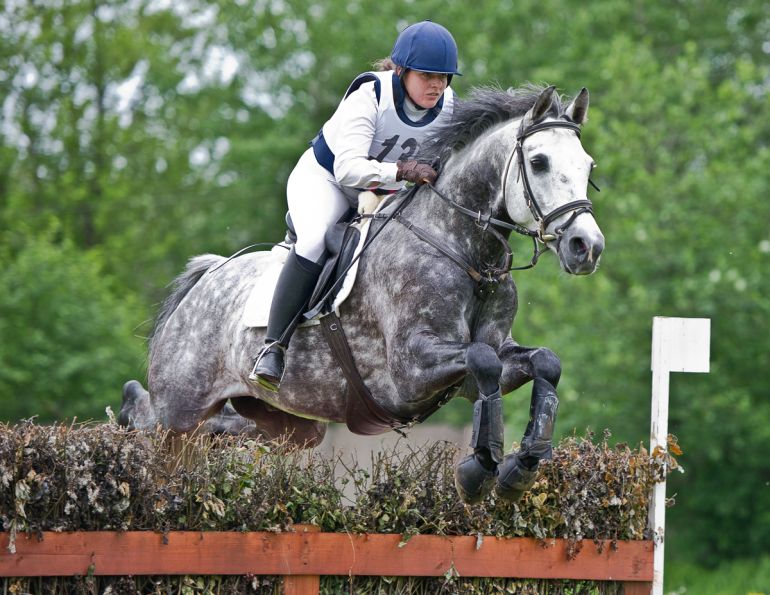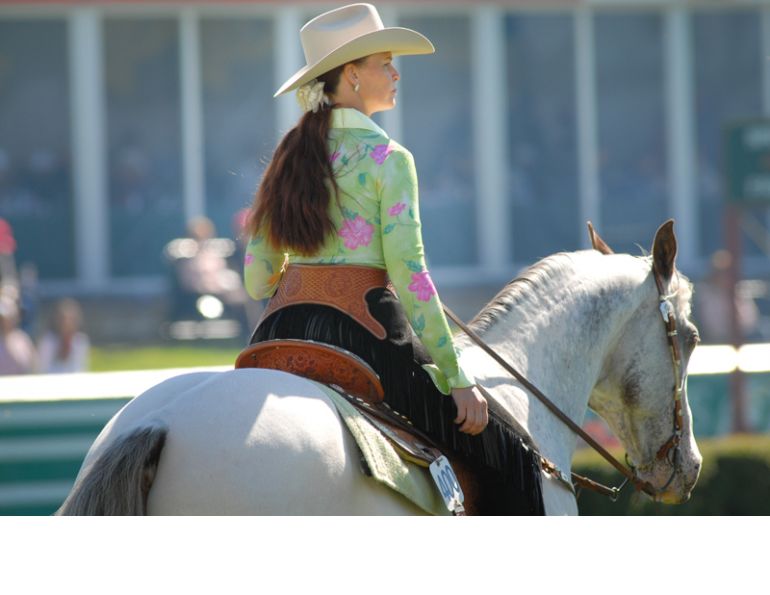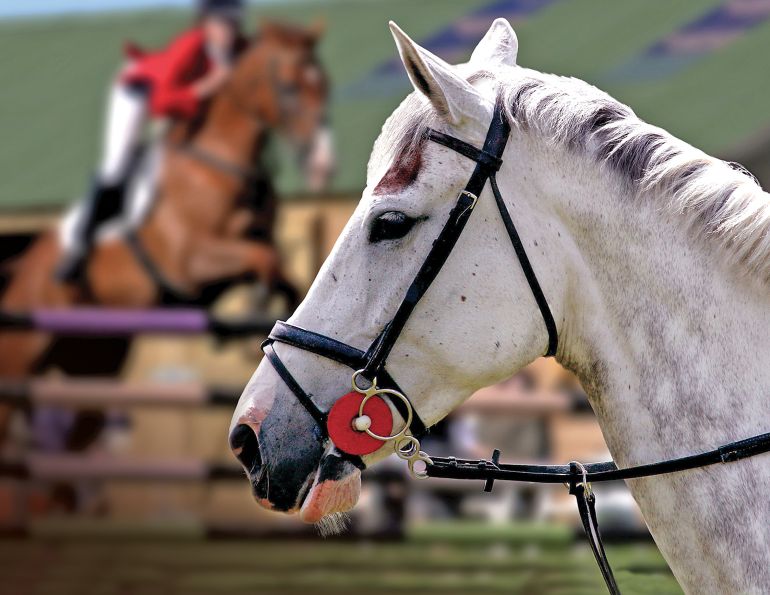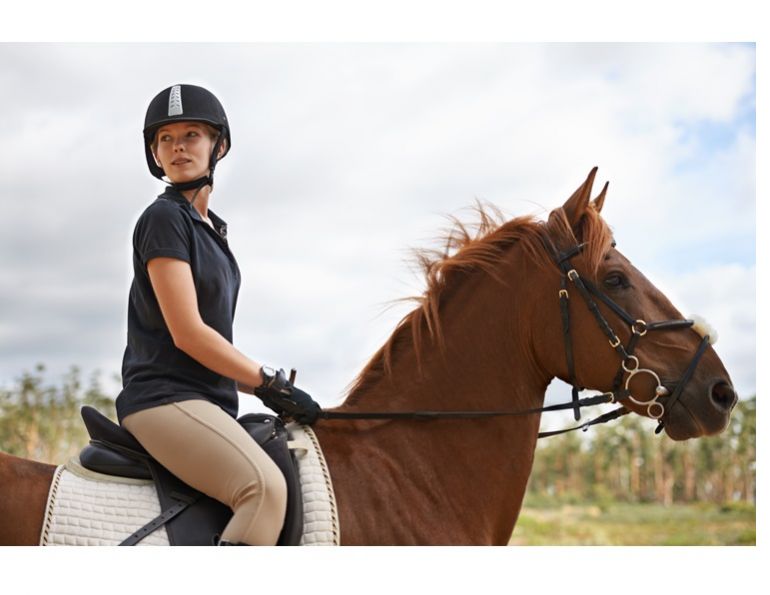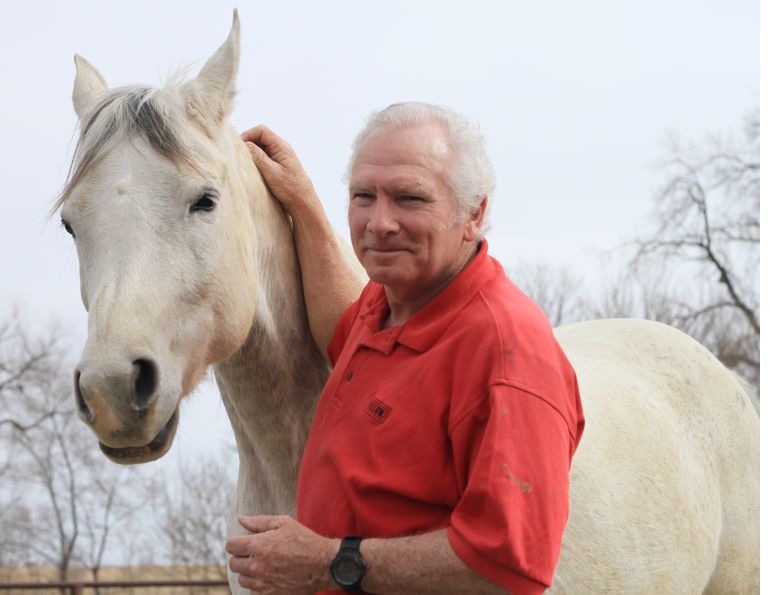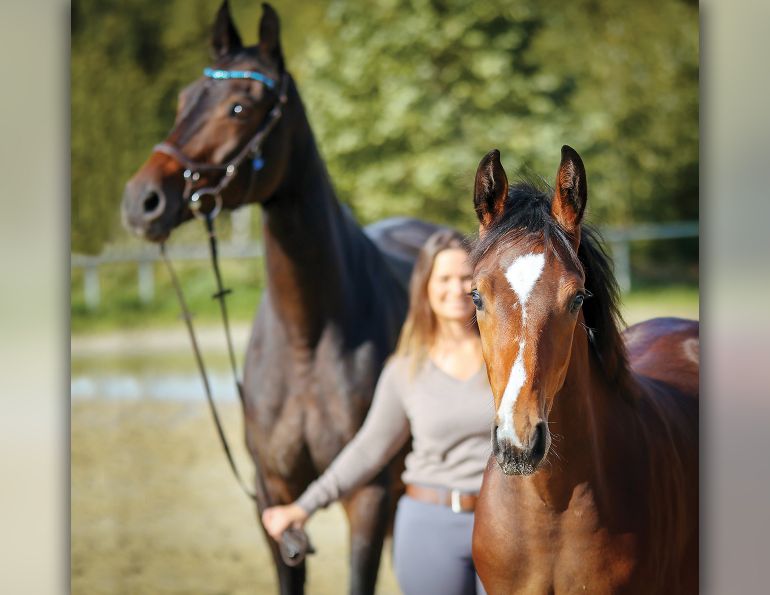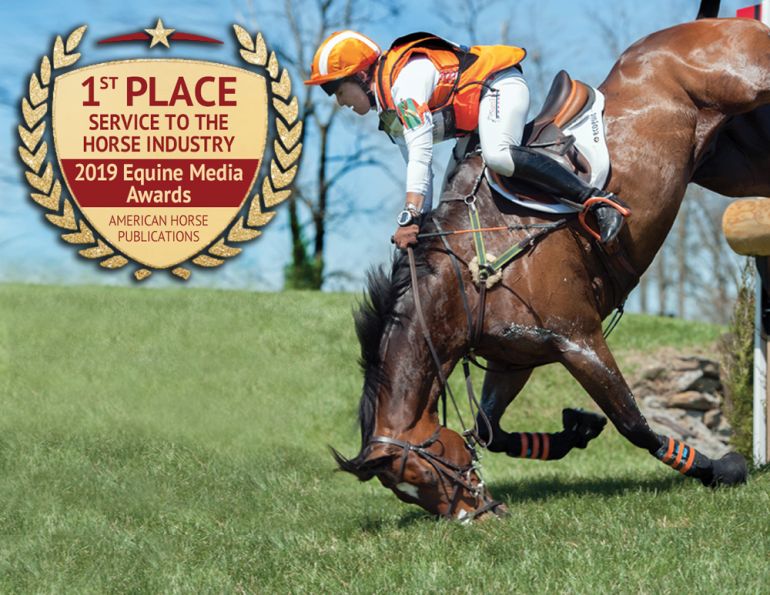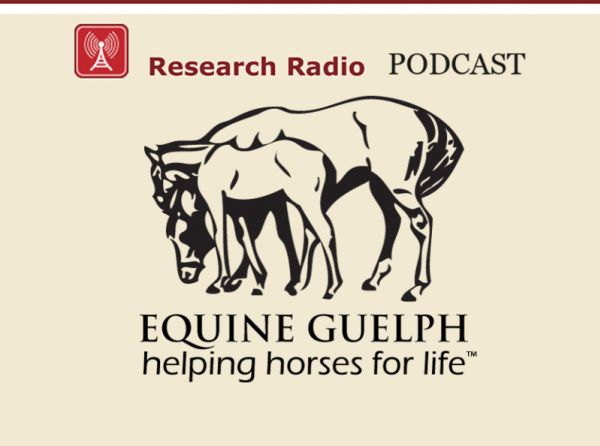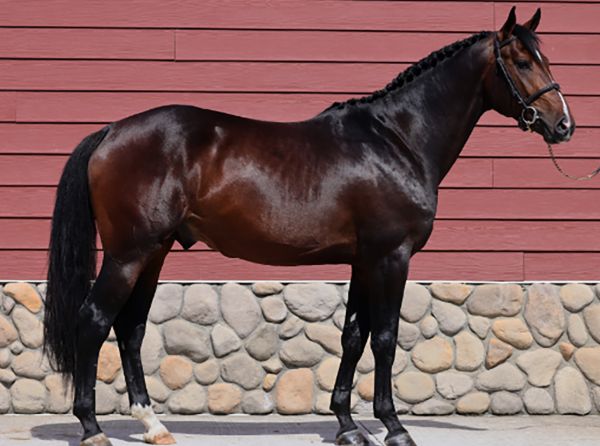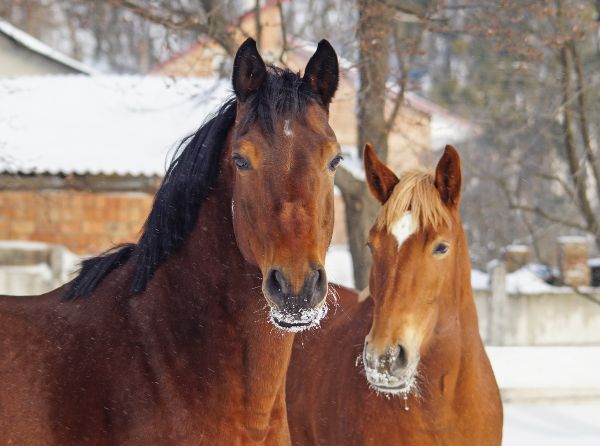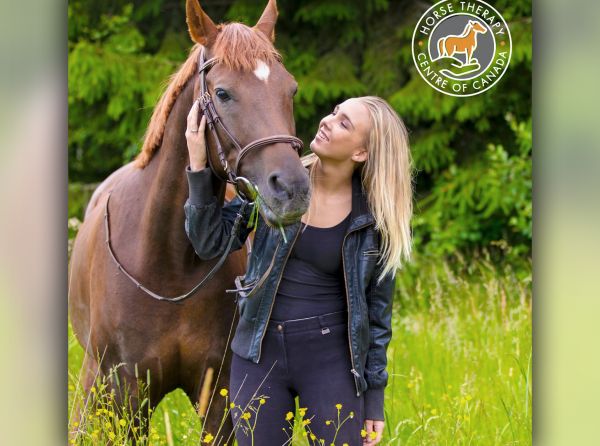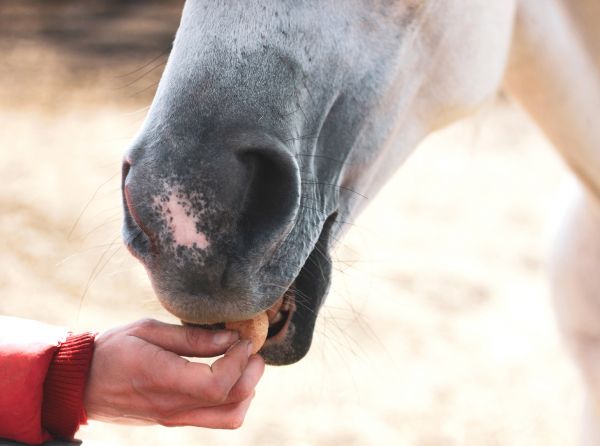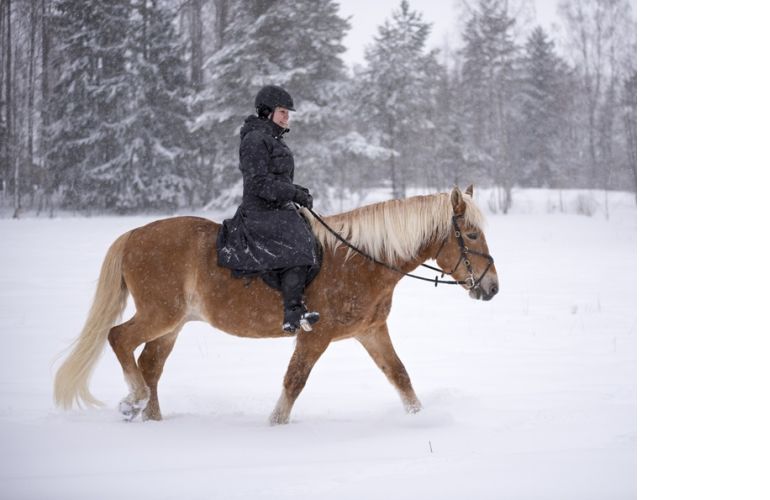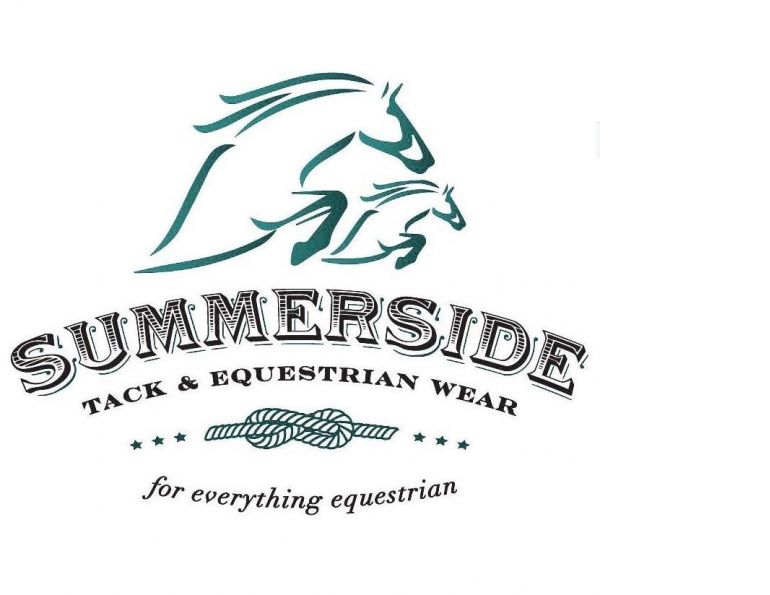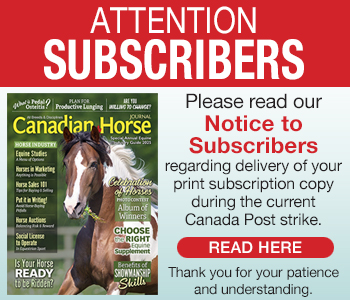By Annika McGivern
Last summer I was watching a warm-up ring at Thunderbird Show Park in Vancouver, BC and noticed a rider who seemed to be having a hard time. Her horse was quite tense and wasn’t paying attention, despite her best efforts to create a contact. The horse seemed very distracted and when they trotted up to a practice jump he refused. The rider was fighting to retain composure, but her tension and frustration were evident. She managed to get over a few jumps at the trot but when they began cantering, the horse rushed the jumps and nearly bolted away on landing. After a couple of jumps she pulled up in the corner of the arena and I could see from her face that she was working hard to hold back tears.
I’m sure everyone reading joins me in empathising with this rider. Regardless of discipline, we have all been in similar situations where we work incredibly hard to prepare for a show and then everything seems to fall apart when we get there. From my work with riders on their mental performance and well-being, I’ve observed that riders rarely have an effective strategy or routine in place to support their confidence, resilience, focus, and performance at competition.
To fully understand why a competition routine is crucial to a successful show, it helps to understand a bit of the science behind how our mind operates under pressure. When we enter a high-pressure situation, our mind often interprets the pressure as a threat and responds by activating our fight, flight, or freeze response, designed to help us survive danger. This survival-orientated response is our default response to pressure unless we teach ourselves a different way of understanding and responding in those high-pressure environments. Without a routine in place to help us regulate our nervous system, we are easily overwhelmed when things become challenging and likely to react emotionally instead of with a calm, problem-solving focus. By creating and practicing a competition routine, we are teaching ourselves an intentional and helpful way to respond to pressure, stress, and emotion with a well-learned series of behaviours or habits.
BEFORE THE SHOW
Set the intention to manage your mind and emotions while at the show. This is a simple yet important step in the process. By setting this intention we are affirming to ourselves that this is an important element of our success that we want to pay attention to.
Consider the following questions:
- Who do you want to be at the show?
- How do you want to behave when things go well?
- How do you want to behave when things get difficult?
It’s important to decide these things before we arrive and the pressure descends.
Related: When Things Go Wrong in the Show Ring
Next, learn to practice a set of beliefs that will support you instead of sabotage you. Prime your brain to perform well under pressure by building a strong competition mindset. I like to work with clients to build a three-part competition mindset by developing a clear answer to the following three questions:
- Who am I?
- What am I here to do?
- How am I going to do it?

Before the show, prime your brain to perform well under pressure by building a strong competition mindset. Photo: Clix Photography
Part One: Who am I?
Start by aligning your identity with the level you are competing at in the show. If you are showing first level dressage, you are a first level dressage rider. If you are jumping 1.20 metres, you are a 1.20-metre rider. If you are eventing at training level, you are a training level rider. It is important not to wait to have success at this level before allowing yourself to feel you deserve to be there. Say it out loud to yourself now! I am a (insert level you are training/competing at here) rider.
Next, build in supportive and helpful ways of thinking about yourself such as:
- I am someone who likes challenges.
- I am someone who enjoys the challenge of competition.
- I am someone who has the ability to learn and improve through this experience.
- I am someone who deserves to be here.
Do these statements feel true to you? If not, consider how you could change your mind or shift your perspective so that they do feel true. Practice repeating these truthful and supportive statements to yourself in all your rides.
Part Two: What am I here to do?
Now clarify your goals. No matter what level my clients are competing at and how much experience they have at that level, I always advise them to set the goal to do their very best and be as competitive as possible. Come in on the offensive with the intention of figuring out how to do a great job. Focus on the question How am I going to do this? instead of Can I do this? For example, your goal might be: I am here to be competitive in the Training Division. I am here to have a great time challenging myself and my horse. I am here to do the best job I can.
Part Three: How am I going to do it?
Finally, identify the key things to focus on that will enable you to stick to your plan and meet your goals. For example, I will:
- Work hard at managing myself (thoughts, focus, and behaviours);
- Do an excellent job of managing the things under my control (hydration, rest, nutrition, focus, thoughts, beliefs, warm-up, preparation);
- Do an excellent job of managing my mistakes;
- Remember to find the fun in the challenge.
Related: How to Build High Performance Belief Systems for Equestrian Athletes
AT THE SHOW
At the show we need to regulate our nervous system, utilizing practiced strategies to help release tension, stress, and negative emotions, and engage with calm, focused determination. We can do this mentally and physically by creating a routine (set of habits) that we step into when feeling stressed, emotional, or overwhelmed.
- Tell yourself you’re okay, and you’re okay with it being hard, because you know doing difficult things is part of what it means to be a rider.
- Consider what you can control about your current situation and where your focus and energy is best spent.
- Take several deep breaths into your stomach, breathing in and out through your nose.
- Intentionally release tension in your body and try to smile, even if it feels a bit unnatural at first.
Consider these more general helpful behaviours too:
- Fuel your body by eating regularly and prioritising nutritious food.
- Hydrate your body by drinking lots of water regularly.
- Move as much as possible to release tension i.e., walk lots and stretch.
- Engage in positive, helpful, and supportive self-talk.
- Be friendly and supportive of others.

Before the show, prime your brain to perform well under pressure by building a strong competition mindset. Photo: Clix Photography
AFTER THE SHOW
There is an important opportunity after the show to reflect on what worked and what was challenging. Here are some useful questions to make this reflection process effective and efficient:
- What were your three biggest wins or highlights?
- Where are the opportunities for improvement?
- How will you work on those areas in your training?
With this routine in place, we can imagine a different outcome for our example rider at Thunderbird Show Park. Arriving with a strong competition mindset, she would have entered the show ring confident she deserved to be there and prepared to handle any challenges. She would have arrived in the warm-up well fed, hydrated, and with less tension, therefore giving her brain and body the best chance at a strong performance. When her horse started out tense and refused the first jump, she would have regulated her nervous system by speaking supportively to herself, breathing deeply, and releasing tension from her body. This would have allowed her to stay calm and curious despite things not going the way she hoped. We can then imagine that this calm curiosity would have led her to do things differently. She would have been able to problem solve, ask for help, and make clearer decisions, all of which would support a positive experience overall with lots of lessons learned. Finally, she would have left the show clear on what she did well and how to work towards improvement.
I encourage you to try this process for yourself, instead of leaving your mental and emotional responses under pressure to chance. You have control over everything that matters in a competition environment: your thoughts, beliefs, actions, and reactions. Creating an effective routine will help you bring your best self to the challenge.
Related: Horse Riders Are Athletes
Related: High Performance Habits for the Horse Competition Season
Photo: iStock/Raylipscombe







